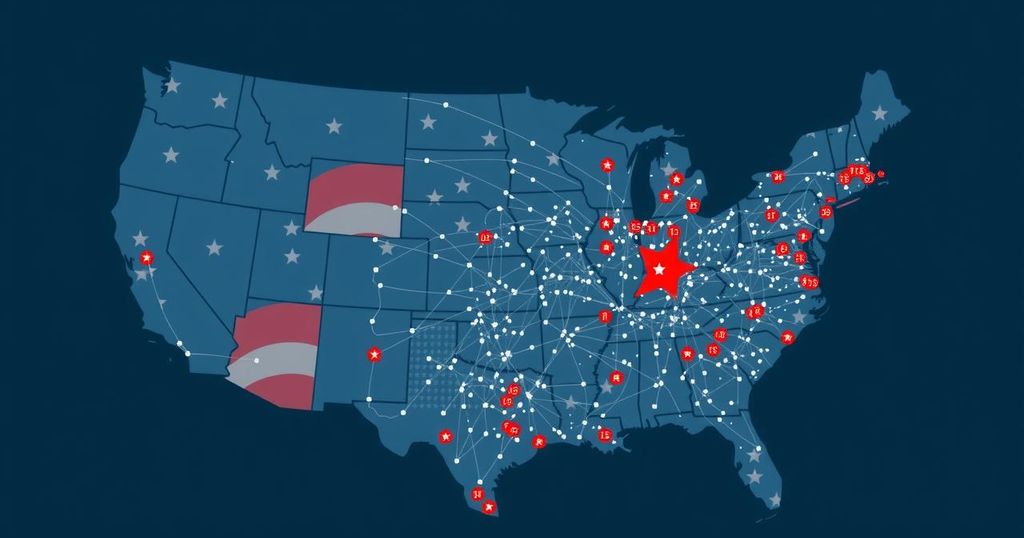Recent reports indicate increased Chinese influence campaigns aimed at U.S. elections, particularly targeting Republican candidates opposing China. The Microsoft Threat Analysis Center highlighted a disinformation campaign called ‘Taizi Flood.’ Allegations of Chinese hackers breaching phones of Trump and Vance have surfaced, increasing scrutiny on foreign interference as elections approach. Experts urge enhanced cybersecurity and proactive countermeasures against misinformation.
Recent reports have heightened concerns regarding potential Chinese influence in the upcoming U.S. elections. A report from Microsoft’s Threat Analysis Center indicated that Chinese actors have been targeting candidates and campaigns, particularly those advocating for policies against China. The Chinese Embassy has denied any intention to interfere in U.S. electoral processes. The Microsoft report named a disinformation campaign called “Taizi Flood,” which has specifically targeted Republican candidates like Representatives Barry Moore and Michael McCaul, as well as Senators Marsha Blackburn and Marco Rubio. For example, the campaign allegedly promoted Blackburn’s opponent, Representative Gloria Johnson, by creating and sharing misleading content. Moreover, recent incidents have emerged concerning the alleged hacking of former President Trump’s and Vice Presidential candidate Sen. JD Vance’s phones by Chinese operatives. The FBI is currently investigating these breaches, although details remain unclear. Kim Wyman, a former election security adviser, stated, “From sort of a democracy standpoint, you can’t lose sight of the fact that the goal of our foreign adversaries, including China, is to destabilize America from within.” This sentiment underscores the heightened sense of vulnerability, particularly for downballot candidates who may not have the same cybersecurity resources as higher-profile races. With advancements in technology, particularly artificial intelligence, the threat of widespread disinformation continues to advance, enabling even greater dissemination of misleading content. Experts caution that the focus on non-presidential races should not lead us to underestimate potential links to the national election agenda. Despite the low likelihood of success against well-established candidates, experts suggest implementing robust cybersecurity measures, maintaining transparent communication with authorities, and fostering good relationships with local law enforcement. Campaigns are urged to equip themselves with effective strategies to counteract disinformation swiftly.
The issue of foreign interference in U.S. elections, particularly by China, has been a growing concern among officials and cybersecurity experts. Previous intelligence reports have indicated that Chinese actors utilize social media platforms to spread disinformation targeting various electoral candidates. The recent Microsoft report highlights concerns particularly about campaigns at lower ballot levels, where candidates might lack significant defenses against these influences. Experts recommend that campaigns enhance their cybersecurity practices and monitor for disinformation actively as elections approach.
In summary, as U.S. elections draw near, the potential for Chinese influence through targeted disinformation campaigns raises urgent concerns among security officials and lawmakers. Enhanced cybersecurity measures, preparedness to counter misinformation, and proactive engagement with federal authorities are necessary for safeguarding electoral integrity. Addressing the vulnerabilities of downballot campaigns is critical, as they may become prime targets for foreign interference efforts.
Original Source: thehill.com






